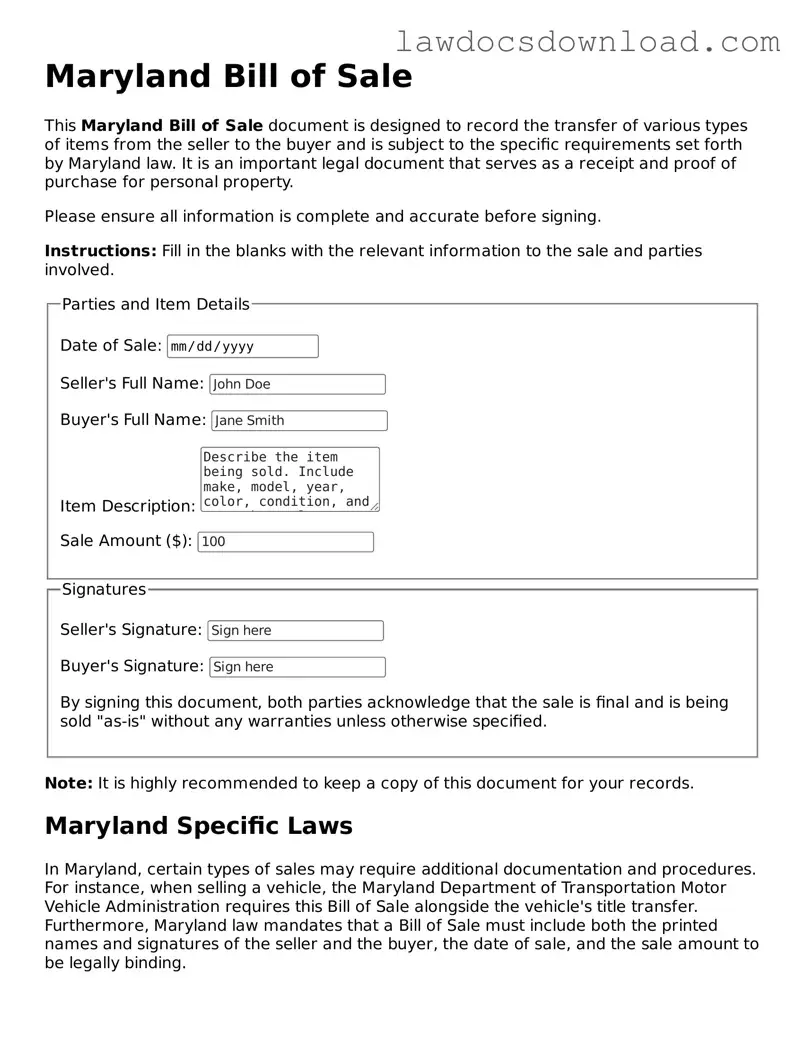Completing the Maryland Bill of Sale form is an important step in the process of buying or selling a vehicle or other significant asset. However, individuals often make errors that could potentially delay or invalidate the transaction. One of the common mistakes includes not providing complete information about the item being sold. This includes forgetting to list important details such as make, model, year, and serial number, which are crucial for accurately identifying the item.
Another frequent error is failing to verify the accuracy of the buyer's and seller's personal information. Names, addresses, and contact details must be correctly recorded to ensure that each party is easily identifiable, and all communications related to the sale are directed to the right individuals.
Not including the date of the sale is also a mistake that some people make. This detail is essential as it marks when the ownership officially transfers from the seller to the buyer. Without a clearly specified date, disputes may arise regarding the timing of ownership and responsibility for the item.
A significant number of individuals also overlook specifying the terms of the sale. Whether there are any warranties or the item is being sold "as is" should be explicitly stated. This omission can lead to misunderstandings and legal complications if the buyer encounters unexpected issues after the purchase.
Additionally, failing to record the payment details correctly is a common error. Including the sale amount, payment method, and whether the transaction is complete or involves a payment plan provides clarity and protects both parties financially.
Ignoring the necessity for witnesses or a notary can also be problematic. Depending on the jurisdiction and the nature of the item being sold, having the document witnessed or notarized might be a legal requirement to validate the Bill of Sale.
Forgetting to provide a detailed description of the item is another oversight. Beyond the make and model, including the item’s condition, unique features, or any included accessories ensures both the buyer and seller agree on what is being transferred.
Lack of signatures is an obvious yet frequently encountered mistake. Both the buyer and the seller must sign the Bill of Sale to finalize the document. Without these signatures, the document is not legally binding and could be considered invalid in a legal setting.
Lastly, not retaining a copy of the signed Bill of Sale is a misstep people often regret. Both parties should keep a copy of the document for their records. It serves as a receipt and a legal record of the transaction, which might be needed for registration, tax purposes, or to resolve any future disputes.

